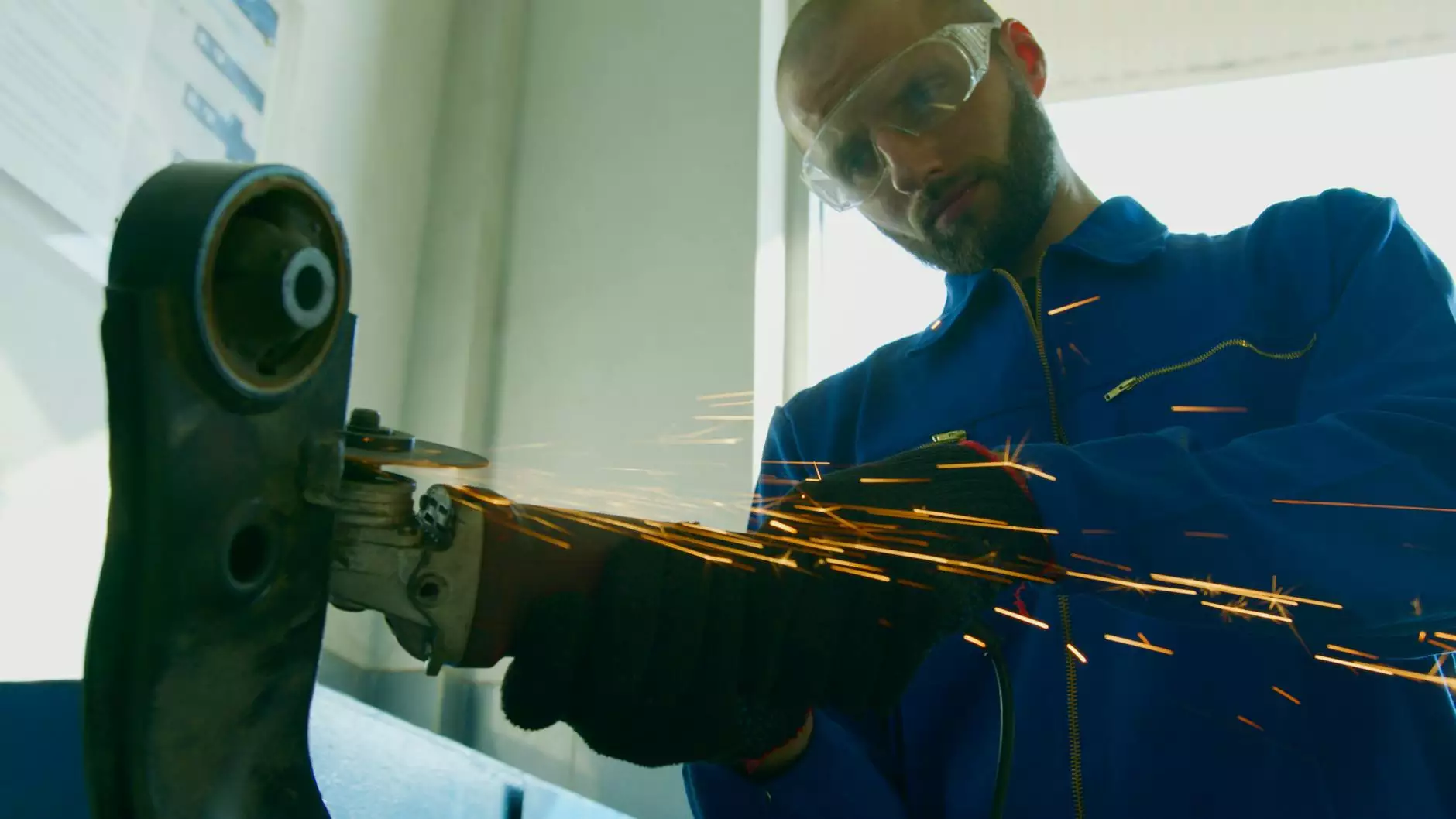The Unsung Heroes of Urban Cleanliness: Road Sweeper Trucks

In the bustling world of urban infrastructure, road sweeper trucks play a crucial yet often overlooked role. As cities continue to grow and evolve, the importance of keeping our streets clean and well-maintained has become more paramount than ever. In this comprehensive article, we will delve into the significance, functionality, and advancements of road sweeper trucks, shedding light on how they contribute to vibrant urban living.
The Importance of Road Sweeper Trucks in Modern Cities
Urban environments are teeming with vehicular traffic, commercial activities, and pedestrian movement. This constant activity generates an extensive array of debris, pollutants, and waste that must be managed efficiently. Here are several reasons why road sweeper trucks are essential for maintaining city cleanliness:
- Public Health: Streets filled with litter and debris can be breeding grounds for pests and diseases. Regular cleaning helps mitigate health risks.
- Improved Aesthetics: Clean streets enhance the visual appeal of a city, making it more inviting for residents and tourists alike.
- Environmental Impact: Sweepers play a vital role in removing pollutants that can compromise natural water bodies, thereby aiding environmental sustainability.
- Infrastructure Longevity: Regular sweeping prevents the accumulation of debris that can damage road surfaces, saving cities money on repairs.
How Do Road Sweeper Trucks Work?
Road sweeper trucks are sophisticated machines equipped with various features that enable them to effectively clean urban roads. Understanding the mechanics behind these trucks can provide insights into their efficiency and capabilities.
Key Components of Road Sweeper Trucks
Modern road sweeper trucks are equipped with advanced technology and numerous components designed for optimal performance:
- Vacuum System: A powerful vacuum system is integral to road sweepers, allowing them to suck up dirt, debris, and leaves from the road surface.
- Brooms: Rotary and side brooms are used to agitate and direct debris towards the vacuum, ensuring thorough cleaning.
- Water Spray System: Many sweeper trucks feature a water spray system to suppress dust, improving air quality and visibility during operations.
- Integrated Controls: Advanced trucks come equipped with intuitive controls that allow operators to adjust settings for different road conditions and debris types.
Types of Road Sweeper Trucks
There are various types of road sweeper trucks, each designed for specific cleaning tasks:
- Mechanical Broom Sweepers: These are the most common type, utilizing brooms to push debris into a hopper.
- Vacuum Sweepers: Ideal for picking up fine debris and dust, these use a vacuum system and are often employed in sensitive environments.
- Regenerative Air Sweepers: Utilizing compressed air, these sweepers are efficient in collecting finer particles while minimizing water usage.
- Waterless Sweepers: Incorporating innovative technology, these trucks remove debris without the use of water, reducing environmental impact.
The Role of Road Sweeper Trucks in Sustainability
As cities strive to become more sustainable, the role of road sweeper trucks becomes increasingly significant. Here’s how these machines contribute to sustainability:
Reducing Pollution
By removing debris and pollutants from the road before they can wash into storm drains, road sweeper trucks play a crucial role in protecting water quality.
Curbing Waste Management Costs
Efficient street cleaning can prevent larger-scale sanitation issues, thus reducing the overall costs associated with waste management and cleanup after natural disasters, such as floods.
Promoting Eco-Friendly Technologies
With advancements in technology, modern road sweepers incorporate sustainable features, such as electric power options and recyclable materials, promoting a greener fleet.
Investment in Road Sweeper Trucks: A Smart Business Decision
For companies involved in facility management, municipalities, and private contractors, investing in road sweeper trucks can yield significant returns. Here are a few reasons why:
- Cost Efficiency: Regular street cleaning reduces the need for extensive road repairs and can prolong the lifespan of road surfaces.
- Enhanced Reputation: Clean streets lead to positive perceptions of communities and businesses, enhancing overall reputation.
- Compliance and Regulation: Many cities have regulations regarding cleanliness; having efficient cleaning equipment can ensure compliance.
- Operational Versatility: Road sweeper trucks can be used in various settings, from urban streets to construction sites, maximizing their utility.
Trends in Road Sweeper Truck Technology
The market for road sweeper trucks is evolving, with manufacturers implementing cutting-edge technologies to enhance performance and efficiency. Some noteworthy trends include:
Automation in Road Sweepers
Automation technologies are starting to take center stage, allowing for programmed cleaning routes and operational efficiencies. This not only reduces labor costs but also improves the consistency of street cleaning.
Electric and Hybrid Models
With a growing emphasis on reducing carbon footprints, more manufacturers are creating electric and hybrid road sweeper trucks. These models provide a significant reduction in emissions and lower operational costs due to less fuel consumption.
Data Analytics and Smart Sweepers
Incorporating data analytics, smart sweepers can optimize cleaning schedules based on traffic patterns and pollution levels, leading to more effective and targeted cleaning efforts.
Case Studies: Cities Leading the Way with Road Sweeper Trucks
To illustrate the impact of road sweeper trucks, let's explore a few cities that have successfully integrated these tools into their urban management strategies:
San Francisco
San Francisco employs a fleet of advanced vacuum sweepers equipped with GPS technology that tracks cleaning routes in real-time, allowing for efficient scheduling and ensuring all areas receive regular maintenance.
Copenhagen
Copenhagen has embraced electric road sweeper trucks, significantly reducing the city's carbon emissions. Their focus on sustainability reflects in their approach to urban cleaning and has set an example for cities worldwide.
Tokyo
Tokyo has integrated smart technology within their road cleaning operations. Data analytics aids their fleet in optimizing cleaning schedules based on street usage, leading to a more efficient approach to urban cleanliness.
Conclusion: The Future of Road Sweeper Trucks
In conclusion, road sweeper trucks are far more than just cleaning vehicles; they are vital components of urban infrastructure that contribute to public health, environmental sustainability, and economic efficiency. As technology continues to advance, we can expect these machines to become even more integrated and indispensable in maintaining the cleanliness and functionality of our urban spaces.
Investing in road sweeper trucks today means investing in a cleaner, healthier urban environment for future generations. Whether you are a city planner, a facility manager, or a concerned citizen, recognizing the importance of these trucks is crucial for fostering thriving communities.









